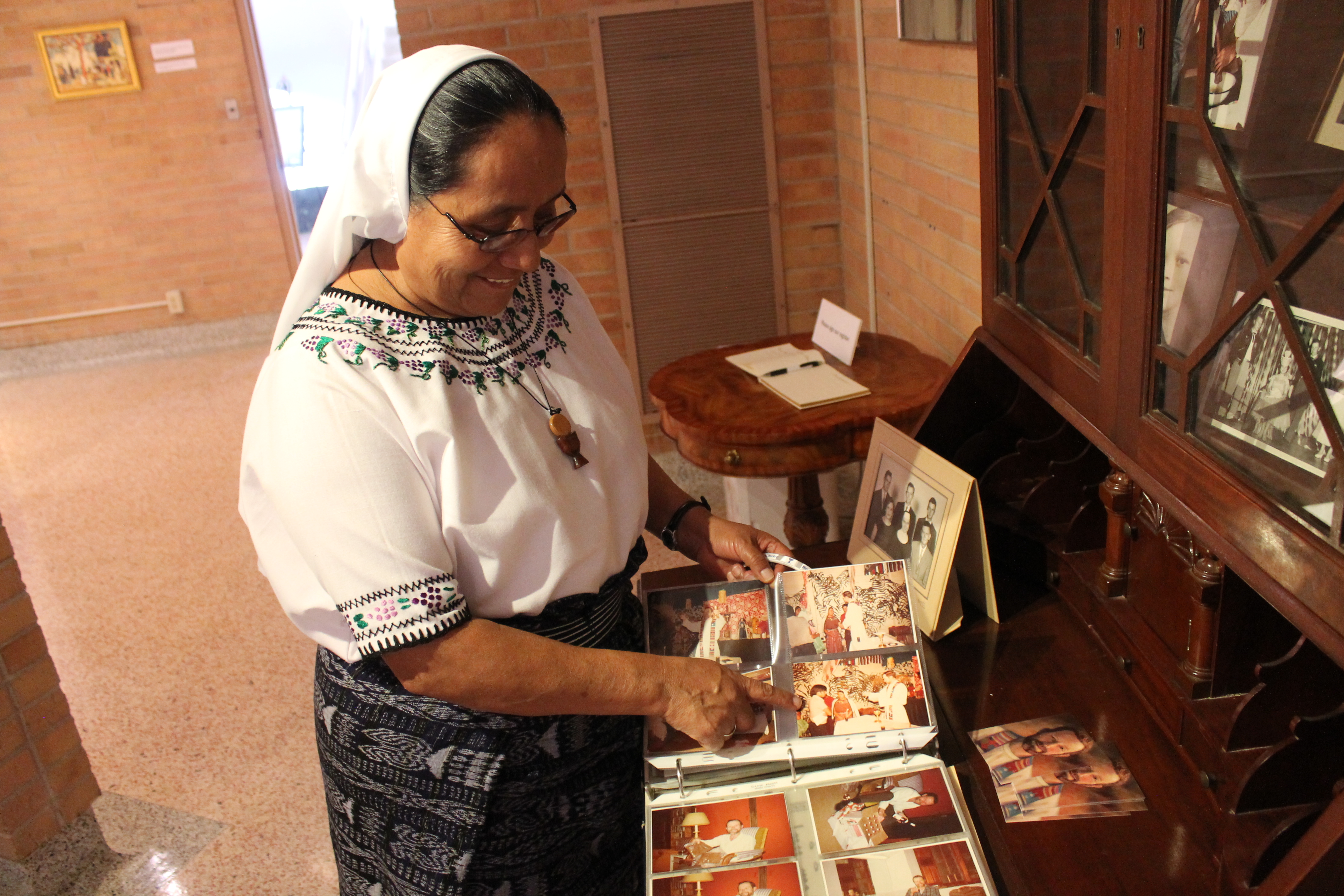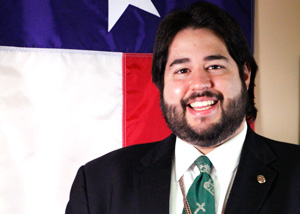
“That’s me!” she said in Spanish as she looked at a picture of her from nearly 40 years ago with the martyred priest. As a journalist, I know an opportunity when I see one, so I sat down with her and recorded an interview.
She recounted how “Padre Francisco” wanted indigenous vocations and how he was instrumental in hers. She recalled his witness and example. And she remembers being among the sisters to see his body shortly after he was assassinated — it was hard to keep my own composure as she shared that part.
She was just one of the many people I encountered who remembered their interactions with him.
Audio PlayerOne woman in Tulsa referred to her house as a relic because Blessed Rother blessed their house when he was serving as a parochial vicar there. “I’ll probably never move,” she told me.

I first learned of Stanley Rother about 14 years ago when I was considering a vocation with the Glenmary Home Missioners. I hadn’t formally applied to any program, but I was put in touch with some priests in Oklahoma and encouraged to visit and serve with them, which I did periodically while I was in college.
On one of these visits, I saw a crucifix with a plaque that simply read: “Father Stanley Francis A’Plas Rother, Martyred 28 July 1981.” I asked Fr. Frank, who was 90 years old at the time, about it. He shared with me the story and I was instantly drawn to Fr. Rother’s heroic virtue.
But I was also inspired by where he came from, his “ordinariness.” Blessed Stanley Rother came from a small town, the kind of small town I was familiar with through my Scouting experiences, or some not too far from where I went to college. The fact that he was from somewhere so close to where I was at the time didn’t hurt. But he was just a normal guy.
I could relate to Fr. Rother — he didn’t seem so far off. And that’s what I learned when I returned to Oklahoma to cover the beatification. I traveled in his footsteps, visiting every parish he served before going to Guatemala, as well as the parish in Okarche where he grew up.
One parish, San Francisco Xavier in Tulsa, is now a predominantly Hispanic parish, where the pastor tells me parishioners have been coming to receive the sacraments more often. In another parish, Corpus Christi in Oklahoma City, I learned how he arrived shortly after it had merged with an African American parish. One black man told me how this farm boy priest helped with the integration process and how his example inspired him to convert to Catholicism.

When I visited his hometown, extended family from across the country converged on this small church. A distant cousin from Minnesota who’d never met him told me how his life and background reminded her of her own small town up north.
I was taught by an old editor that people like to read stories about themselves, meaning they want to be able to relate to the person they’re reading about. Here at the Sun, I try to feature ordinary people doing extraordinary things, so our readers can say to themselves, “I can do that.”
That’s Fr. Stanley Rother. That’s the story of the saints. They’re who inspire us, no matter what our background, to be open to the will of God and discern how He may be calling us to make a difference in the world.






